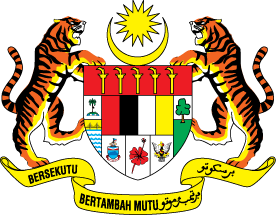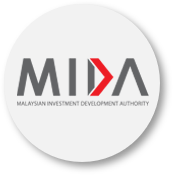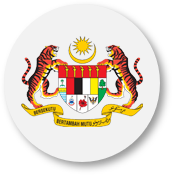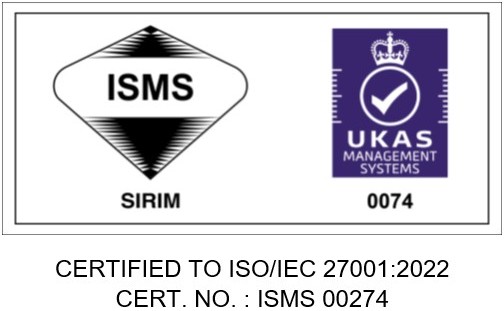-
Malaysia is participating in the TPP Ministerial Meeting from 28-31 July 2015 in Hawaii, USA. The aim of this meeting is to substantially conclude negotiations that began five years ago. There will be no signing of any Agreement in Hawaii. I repeat: Signing of the TPPA will not happen in Hawaii. Like Malaysia, each TPPA member will need to go through its own domestic process before a final decision to sign and ratify the TPPA is made.
-
I wish to emphasise that as the Minister-in-charge of the TPPA negotiations for Malaysia, it is my responsibility to ensure that our Constitution, sovereignty and core policies of the nation – including the interests of the Bumiputera community – are safeguarded and upheld. Our objective at this meeting is to ensure that Malaysia’s interests and concerns are addressed in the negotiations.
-
The Malaysian negotiating team that I head comprises experts from more than 20 ministries and agencies. For example, Bank Negara Malaysia handles the financial services negotiations; the Ministry of Finance negotiates the Government Procurement chapter; the Ministry of Human Resources, the Labour Chapter; the Ministry of Natural Resources and Environment, the Environment chapter; the Ministry of Agriculture, the Sanitary and Phytosanitary chapter; the Ministry of Domestic Trade, Consumerism and Cooperatives, the chapters on Competition Policy, and Intellectual Property Rights. The team is assisted by legal officials from the Attorney General’s Chambers. Positions taken by our officials on issues negotiated in the TPP are also based on feedback received from various stakeholders.
-
To enhance public understanding of the TPPA, we have held more than 100 engagements with various stakeholders over the last few years. These include parliamentarians, industry groups, academicians, students, cleared advisors and non-governmental organisations (NGOs) as well as individuals. About 18 months ago, the Government also took the unprecedented step of establishing a bipartisan Parliamentary Caucus on TPPA comprising 6 MPs from Barisan Nasional and 5 MPs from the opposition. These lawmakers have been actively engaged in discussions on the TPPA and their feedback has been important in formulating Malaysia’s position in the negotiations.
-
I have also personally met and discussed the TPPA with many prominent critics. I am very grateful to all who have given me feedback, guidance, as well as criticisms of the TPPA. These have helped me in strengthening our negotiating position. Let me address six major concerns regarding the TPPA:
a. Sovereignty
-
One of the main concerns over the TPPA is the inclusion of the Investor-State Dispute Settlement (ISDS) mechanism. The criticism is that this would impinge on Malaysia's sovereignty and limit the policy space of the Government to regulate.
-
Let me state very clearly that the TPPA does NOT prevent Governments from pursuing and regulating legitimate public policy objectives, especially in areas such as national security, public health environment and welfare. There are a number of safeguards being negotiated to address key concerns, including the avoidance of frivolous challenges by investors. We are committed to ensuring that our core national policies, including the Bumiputera agenda, will be safeguarded.
-
It is important to note that the ISDS is not new for Malaysia. We already have 74 BITs and eight FTAs which contain ISDS provisions. While the scope of the ISDS in the TPP is wider, there are clear provisions that reaffirm the rights of Governments to regulate and prevent frivolous claims and challenges. Let's bear in mind that the ISDS cuts both ways. Malaysian investors abroad will also have the same protection mechanism in the TPPA countries they venture into. In fact, as at the end of last year, the stock of Malaysian investments overseas has exceeded foreign direct investments into Malaysia.
b. Government Procurement
-
On Government Procurement, Malaysia is safeguarding Bumiputera preferences by ensuring that the current Bumiputera and SME preferences will be maintained.
c. Capital Controls
-
There have also been claims or concerns that the TPPA will not allow countries to impose capital flow measures. Malaysia and other like-minded countries have successfully defended the rights to ensure that there will be sufficient policy space to mitigate any destabilizing effect of capital flows and preserve financial and macroeconomic stability.
d. Medicines
-
Another major concern is the claim that the price of medicines will rise astronomically as a result of stronger patent protection. In reality, the patent-protection clauses in the TPPA are not that different from Malaysia's current regulations on this subject. Our laws provide patent protection for 20 years. In the on-going negotiations, the proposal will require countries to extend patent protection only if there is unreasonable delay within the regulatory approval process. As our current approval process is efficient, the issue of unreasonable delay will not arise.
-
One other point: prices of drugs are not solely determined by patent protection. Other factors are involved as well, including currency fluctuations, the cost of research and development, marketing budgets and current procurement practices.
-
The Government is fully mindful of the need to ensure that our people have access to affordable drugs and health care. The Government has taken a stand that would balance the access to drugs with incentives for new drugs to be produced and brought into the market.
e. Market Access
-
The TPPA also provides Malaysia with market access for four trading partners that Malaysia has no FTAs with, namely, the US, Canada, Mexico and Peru. For these markets, we will see tariff elimination for between 2,000 and about 4,000 tariff lines of products of interest to Malaysia, including, electrical & electronics products, timber and timber products; textiles; plastic and plastic products; and palm oil and palm oil related products.
f. Islam
-
Contrary to some allegations, I can assure that nothing in the TPPA will threaten the position of Islam as the official religion of Malaysia. The Government will never allow any FTA to undermine this constitutional provision.
-
Let me give one example. There have been claims that as a result of the TPPA, Malaysia’s ability to continue to impose halal requirements will be impaired. In actual fact, our negotiators have successfully argued that halal is not a barrier to trade. This has been acknowledged by the respective parties and thus excluded from the TPPA.
g. Secrecy
-
A common concern is that the TPPA is being negotiated "secretly." It needs to be clarified that in international negotiations, the negotiating text is not normally made public. However, all the issues being negotiated have been openly discussed in all our engagements with various stakeholders.
-
It is not the intention of the Government to keep the negotiating text a secret. In the event that an agreement is reached, the Malaysian public will have access to the full text and as promised, our Parliament will deliberate and make a decision on Malaysia’s participation in the TPP.
h. Conclusion
-
After five years of negotiations, the TPPA negotiations are nearing conclusion. At this stage, countries need to make hard decisions. As in all negotiations, there are concessions that need to be made. But the Government has taken a firm stand in the TPPA: our Constitution, sovereignty, and core policies such as government procurement, state-owned enterprises and the Bumiputera agenda will be safeguarded.
-
I urge all Malaysians to keep an open mind on the TPPA. acknowledge that while there are costs, there are also benefits to Malaysia. As I mentioned earlier, the feedback form all parties has helped guide and influence our negotiating stance on various issues under discussion. Ultimately, the final document together with the two cost-and-benefit analyses will be presented to the public and Parliament. The decision whether to sign or reject TPPA will be a collective Malaysian decision.
Last Updated 2015-07-29 15:18:35 by Azuna Hasbullah atau Abd Rahman













 Home
Home






























